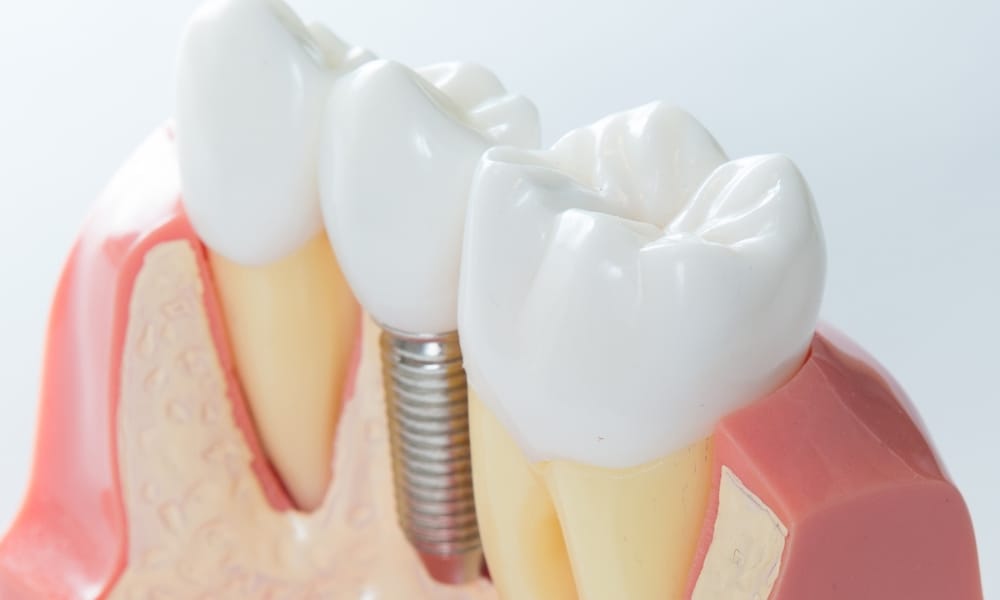While dental implants have transformed oral care, offering a natural-looking and secure solution for missing teeth, they are not without potential complications. Dental implant complications, though rare, can range from minor gum irritation to more serious issues like nerve damage. This can manifest as persistent tingling or numbness around the implant site, lips, chin, or tongue, along with shooting pains radiating along the nerve pathway. Understanding these symptoms and seeking timely intervention is crucial for managing dental implant complications effectively and ensuring a positive outcome. Let’s delve deeper into the potential issues associated with dental implants and explore ways to minimize the risks.
Understanding Nerve Damage After Dental Implants
The nerves in your jawbone play a vital role in sensation and movement. During implant placement, there’s a small risk of damaging these nerves, particularly the inferior alveolar nerve, which runs along the lower jawbone.
Symptoms of Nerve Damage
Following implant surgery, be attentive to any changes in sensation around the implant site. Common symptoms of nerve damage after dental implants include:
Tingling Sensation: A persistent tingling or buzzing sensation around the implant site, lips, chin, or tongue.
Numbness: Partial or complete loss of sensation in the affected area. This can feel like a “dead” or numb patch on the skin or gums.
Shooting Pains: Sudden, sharp pains that may radiate along the nerve pathway.
Muscle Weakness: Difficulty moving the lips, chin, or tongue, depending on the affected nerve.
Severity and Time Course
The severity and duration of nerve damage after dental implants can vary. In some cases, the symptoms may be mild and temporary, resolving on their own within a few weeks or months. However, in more severe cases, the damage can be permanent, requiring specialized treatment.
Diagnosing Nerve Damage
If you experience any of the aforementioned symptoms after your implant surgery, consult your dentist immediately. They will likely perform a thorough examination and may also order additional tests, such as X-rays or nerve conduction studies, to confirm the diagnosis and assess the extent of the damage.
Treatment Options
The treatment for nerve damage after dental implants depends on the severity and type of injury. For mild cases, supportive measures like pain medication and nerve-calming medications may be sufficient. In more severe cases, specialized procedures like nerve decompression surgery or nerve grafting might be necessary.
Preventing Nerve Damage
While there’s no guaranteed way to prevent nerve damage, certain steps can minimize the risk:
Choosing an Experienced Dentist: Opt for a skilled and experienced dentist qualified in implant placement, particularly in complex cases.
Pre-operative Planning: Careful evaluation of your jawbone anatomy and nerve locations through X-rays and CT scans is crucial for precise implant placement.
Minimally Invasive Techniques: Techniques like guided surgery and flapless placement can minimize tissue disruption and reduce the risk of nerve injury.
Following Post-operative Instructions: Adhere strictly to your dentist’s post-operative instructions regarding oral hygiene, pain management, and activity restrictions.
Living with Nerve Damage
While permanent nerve damage can be challenging, there are ways to manage it and adapt. Depending on the severity, options like nerve stimulation therapy, Botox injections, or even facial rehabilitation techniques can help improve function and alleviate discomfort.
Conclusion
While dental implant complications like nerve damage, tingling sensations, and numbness can be concerning, remember that they are relatively rare with proper planning and execution. By choosing a skilled dentist, minimizing surgical invasiveness, and carefully following post-operative instructions, you can significantly reduce the risk of these issues. Be attentive to any changes in sensation around the implant site, and consult your dentist promptly if you experience any symptoms. With thorough evaluation and appropriate management, even rare dental implant complications can be effectively addressed, allowing you to reap the long-term benefits of these remarkable oral health solutions. Remember, knowledge is power, and open communication with your dentist is key to ensuring a smooth and successful dental implants journey. Now, go forth and confidently embrace the smile you deserve, free from the worry of unforeseen complications.

